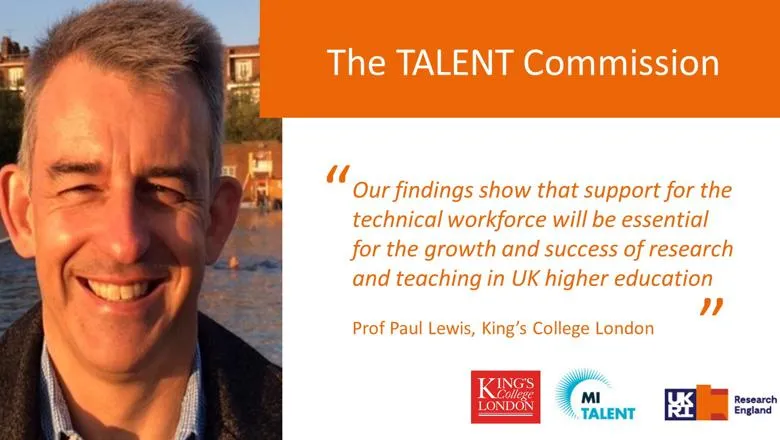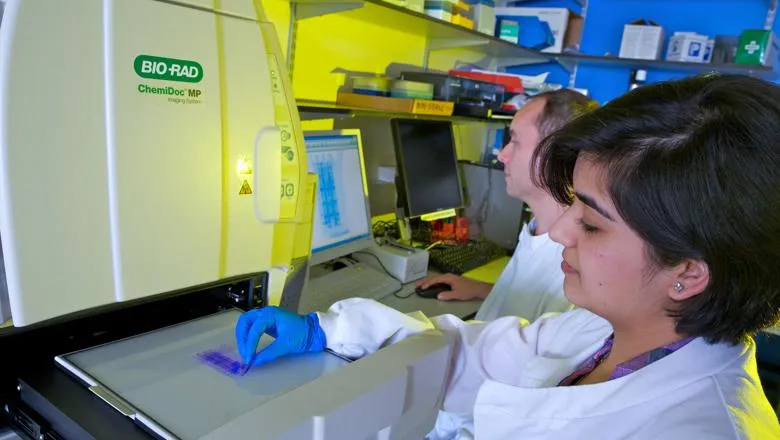
Professor Paul Lewis
Professor of Political Economy
Research interests
- Economics
Biography
Paul Lewis is Professor of Political Economy. He was educated at Peterhouse, Cambridge, and Christ Church, Oxford. Prior to moving to King's, he was a Newton Trust Lecturer in the Faculty of Economics and Politics, and the Faculty of Social and Political Sciences, Cambridge University, and a Fellow of Emmanuel and Selwyn Colleges.
He is an Affiliated Fellow of the F. A. Hayek Program for Advanced Study in Philosophy, Politics, and Economics at the Mercatus Center, George Mason University, USA, and a member of the Cambridge Social Ontology Group. He was a Visiting Fellow of Peterhouse, Cambridge, and the Shackle Scholar at St Edmund’s College, Cambridge, in the Easter Term 2013.
Copies of many of Paul’s papers can be found: at: https://papers.ssrn.com/sol3/cf_dev/AbsByAuth.cfm?per_id=763360 and https://www.researchgate.net/profile/Paul-Lewis-17
Prof Lewis passed away in March 2025. You can find a tribute to him at the link here.
Research
Paul’s research covers a wide range of issues in both theoretical and applied political economy. More specifically, his interests include: the history of economic thought, in particular the Austrian, Bloomington, and Virginia schools of economics; social ontology; technician skills and innovation; and the political economy of vocational education and training. His research has been funded by the CIPD, the Earhart Foundation, the Hoover Institution Library and Archives, the Nuffield Foundation and the Gatsby Charitable Foundation.
In 2016 he won Society for the Development of Austrian Economics for the Best Essay in Austrian Economics, for his paper on "The Emergence of 'Emergence' in the Work of F.A. Hayek: An Historical Analysis" (https://papers.ssrn.com/sol3/papers.cfm?abstract_id=2447341).
His volume of the Collected Works of F. A. Hayek, entitled Essays on Liberalism and the Economy, was published by the University of Chicago Press in 2022 (https://press.uchicago.edu/ucp/books/book/chicago/E/bo88750045.html). The introduction to the volume can be found here: https://papers.ssrn.com/sol3/papers.cfm?abstract_id=4543738.
PhD supervision
Paul would welcome PhD applicants interested in following areas: the history of economic thought, especially the Austrian, Bloomington, and Virginia schools of economic thought; vocational education and training; and the methodology of economics, in particular approaches that focus on the ontological presuppositions of economic analysis.
Teaching
- Studying Economics (UG)
- Game Theory & Strategic Decision-Making (UG)
- Key Concepts in Contemporary Political Economy (PGT)
Research

Politics, Philosophy and Economics Research Group
The PPE research group studies questions spanning the disciplines of politics, philosophy, and economics.

Historical Political Economy Research Group
The Historical Political Economy Research Group at King's College London
News
House of Lords committee hears evidence from King's expert
A King’s academic appeared before a House of Lords committee to offer his expert insight into the state of training and skills in the UK’s STEM sector.

PhD pass is a 'much-needed boost' for Carmen
Doctoral research carried out by a King’s alumna highlighted the ways local networks can help address technical skills shortages across England.

Report calls for investment in technical workforce to power research revolution
The UK’s ambitions to become a global superpower in science and engineering must be supported by investment and recognition for its vital technical workforce,...

Academic joins commission focused on vital technical community
Professor Paul Lewis has been invited to take part in a project that will serve as a blueprint for the next generation of the UK’s technician workforce.

Spotlight
Helping to tackle skills shortages in key growth sectors
King's research has helped to address a key skills gap in the UK's science and technology sector

Research

Politics, Philosophy and Economics Research Group
The PPE research group studies questions spanning the disciplines of politics, philosophy, and economics.

Historical Political Economy Research Group
The Historical Political Economy Research Group at King's College London
News
House of Lords committee hears evidence from King's expert
A King’s academic appeared before a House of Lords committee to offer his expert insight into the state of training and skills in the UK’s STEM sector.

PhD pass is a 'much-needed boost' for Carmen
Doctoral research carried out by a King’s alumna highlighted the ways local networks can help address technical skills shortages across England.

Report calls for investment in technical workforce to power research revolution
The UK’s ambitions to become a global superpower in science and engineering must be supported by investment and recognition for its vital technical workforce,...

Academic joins commission focused on vital technical community
Professor Paul Lewis has been invited to take part in a project that will serve as a blueprint for the next generation of the UK’s technician workforce.

Spotlight
Helping to tackle skills shortages in key growth sectors
King's research has helped to address a key skills gap in the UK's science and technology sector

